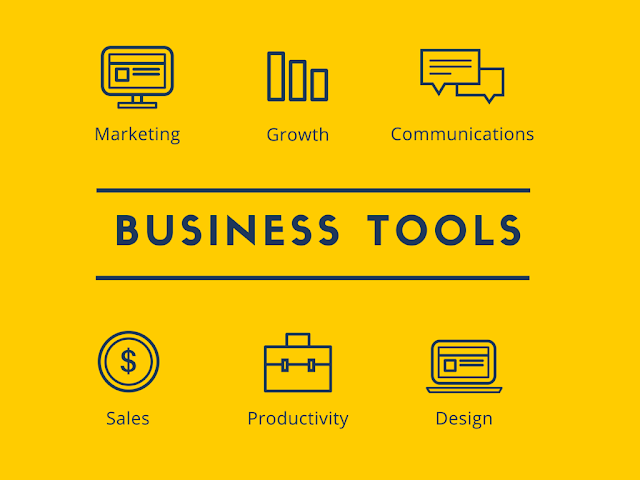The Need for Adaptability in Modern Business
The business landscape of today is marked by constant change and disruption. New technologies emerge at an astonishing rate, opening up new avenues for growth and innovation. However, they also pose challenges as companies must adapt quickly to remain competitive. Additionally, the global economy means that businesses now operate in a larger, more interconnected market than ever before.
Social and cultural shifts further compound the
complexity of modern business. Consumer preferences and behavior evolve rapidly, requiring companies to stay attuned to these changes to effectively engage and retain their customer base. In such an environment, traditional approaches to sales and marketing are often inadequate. To thrive, businesses must embrace change and leverage the right tools.
Sales Automation: A Key to Efficiency and Productivity
Sales automation is a transformative tool that can significantly enhance the efficiency and productivity of sales and marketing teams. Research findings reveal that up to 30 percent of sales tasks can be automated, allowing sales representatives to focus on their core responsibilities: talking to customers and closing deals.
Let's delve into the key benefits of sales automation:
- Time Savings: By automating routine tasks such as data entry, lead nurturing, and follow-up emails, sales teams can reclaim precious hours that would otherwise be spent on administrative work. This newfound time can be channeled into meaningful interactions with prospects and customers.
- Consistency: Automation ensures that processes are executed consistently and without errors. This consistency can enhance the customer experience by delivering uniform and high-quality interactions.
- Scalability: As businesses grow, sales automation tools can scale alongside them, accommodating an increasing volume of leads and customers without a proportional increase in manual effort.
- Data-Driven Insights: Automation platforms generate valuable data that can be used to refine sales and marketing strategies. Insights into customer behavior and preferences can guide decision-making and lead to more effective campaigns.
- Lead Qualification:
Automation tools can help identify high-potential leads and prioritize them for immediate attention, improving the overall efficiency of the sales pipeline.
Sales automation is not just about reducing manual labor; it's about empowering your sales and marketing teams to focus on tasks that require human expertise, such as building relationships and understanding customer needs.
The Missing Piece: Data-Driven Engagement
While sales automation offers incredible advantages, it's not a standalone solution. To fully harness its potential, businesses must integrate data-driven engagement technologies into the mix.
Here's why:
- Personalization: Effective engagement requires a deep understanding of your customers. Data-driven engagement platforms utilize customer data to tailor interactions, making them more relevant and personalized. This personalization can significantly increase conversion rates and customer loyalty.
- Targeted Marketing: Leveraging data, you can segment your audience and deliver targeted messages and offers. This approach minimizes wasted effort on less fruitful targets and maximizes the impact of your marketing campaigns.
- Real-time Insights: Data-driven engagement platforms provide real-time insights into customer behavior. This allows your teams to adapt and respond swiftly to changing customer preferences and market trends.
- Multichannel Engagement: Modern customers interact with businesses through various channels, from email to social media to chatbots. Data-driven engagement platforms enable seamless communication across these channels, ensuring a consistent and integrated customer experience.
- Predictive Analytics: By analyzing historical data, these platforms can make predictions about future customer behavior, helping your teams proactively address customer needs and concerns.
The synergy between sales automation and data-driven engagement is where the magic happens. Together, these technologies empower your revenue teams to engage with customers at the right time, through the right channels, and with the right message.
Need to integrate sales automation tools to your business infrastructure?
Click here.
Best Practices for Implementing Sales Automation and Data-Driven Engagement
To successfully implement sales automation and data-driven engagement in your organization, consider the following best practices:
- Define Clear Goals:
Start by identifying your specific objectives, whether it's improving lead conversion rates, increasing customer retention, or shortening sales cycles. Having clear goals will guide your implementation strategy.
- Invest in Tools and Training:
Ensure that your teams are well-trained in using automation and engagement platforms. Provide ongoing training to keep them updated on new features and best practices.
- Data Quality Matters: Data is the lifeblood of these technologies. Invest in data quality initiatives to ensure that your customer data is accurate, up-to-date, and compliant with data privacy regulations.
- Integrate Systems: Seamless integration between your sales automation and data-driven engagement platforms is crucial. It ensures that data flows smoothly between systems, enabling real-time insights and automation.
- Test and Iterate:
Continuously monitor the performance of your campaigns and automation workflows. Use A/B testing to optimize email subject lines, content, and timing for better results.
- Compliance and Privacy:
Stay vigilant about data privacy regulations and ensure that your engagement practices are compliant. This builds trust with your customers and avoids legal issues.
- Collaboration between Sales and Marketing:
Foster collaboration and communication between your sales and marketing teams. Both should be aligned on goals, strategies, and lead-handling processes.
- Customer-Centric Approach: Always prioritize the customer experience. Your engagement efforts should add value to the customer journey, not disrupt it.
Conclusion: Embrace the Future of Revenue Growth
Modern business moves at an incredible pace, and success hinges on adaptability and the right tools. Sales automation, when combined with data-driven engagement, unlocks new levels of efficiency, productivity, and revenue growth. By automating routine tasks and delivering personalized, timely interactions, businesses can thrive in today's dynamic environment.
As a
Fractional CMO / Chief Marketing Officer, I am excited about the potential that sales automation and data-driven engagement offer.
They enable us to focus on what we do best: connecting with customers and closing deals.
The synergy of these technologies is not just a competitive advantage; it's a necessity in the modern business landscape. Embrace the future of revenue growth by harnessing the power of sales automation and data-driven engagement, and your business will thrive in the face of rapid change and uncertainty.
Your Fractional CMO,
Emilia Andrews











































































































